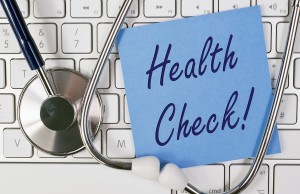“Food, if chosen well, can reshape our medical destinies for the better.”
– David Katz, MD, Director of the Yale Prevention Research Center
 Time to shake off the snowflakes and start gearing up for spring! If you are looking for easy and delicious ways to improve your mood, energy level, skin tone and brain power, these super foods may be just what the doctor ordered. Blue Cross Blue Shield of North Carolina knows that a little prevention goes a long way and the following list of spring foods can add a punch of flavor to your favorite meals while working to give your body the nutrients it needs to feel great and function well.
Time to shake off the snowflakes and start gearing up for spring! If you are looking for easy and delicious ways to improve your mood, energy level, skin tone and brain power, these super foods may be just what the doctor ordered. Blue Cross Blue Shield of North Carolina knows that a little prevention goes a long way and the following list of spring foods can add a punch of flavor to your favorite meals while working to give your body the nutrients it needs to feel great and function well.
Mood: Looking to bring balance and serenity to your springtime? Try these two tasty options to help improve your mood.
Walnuts: Walnuts are one of nature’s secret stress relievers. Full of tryptophan, an amino acid that creates seratonin, walnuts will improve not only your mood, but can also help cultivate emotional balance. Because they are digested slowly, walnuts can help your body stabilize and give it what it needs to tolerate stress. Try adding these to the top of your salad for a little extra crunch or eat them dipped in peanut butter for a satisfying snack.
Asparagus: Asparagus is one of the best vegetables for adding folate to your diet. Folate is very important for pregnant women, but also for everyone because it helps synthesize dopamine, seratonin and nerepinephrine, all of which are important chemicals our bodies release to help us “feel good.” If you find yourself in need of a mood swing this spring, try drizzling a mixture of butter, soy sauce and balsamic vinegar over the top of some fresh asparagus spears and bake them for 12 minutes at 400 degrees. We think you will love this delicious way to improve your mood!
Energy Level: Looking to put some spring back into your step? Below are two great foods to give you the boost you need.
Spinach: Spinach is a great source of iron, which is a key component in the red blood cells that fuel our muscles with oxygen and energy. The compounds found in spinach leaves actually increase the energy producing factories inside our blood cells, making our bodies feel awake and alive. This green-leafy vegetable is delicious in salads and also sauteed in olive olive oil. Adding fresh spinach to quiche or scrambled eggs will not only add color and texture to your plate, but will also help you start your day off right.
Artichokes: Artichokes are an often overlooked vegetable, but they are literally loaded with magnesium, which helps to generate energy in the body. If you don’t get enough magnesium, your muscles have to work harder to react and you tire more quickly. Women especially need 320 mg. of magnesium a day and one artichoke gives you 77 mg. for only 60 calories. Try boiling them until tender and dipping the leaves in your favorite salad dressing. However you cook artichokes, they are a delicious and low-calorie way to help energize your day.
Skin Care: Are the effects of cold-weather and harsh winds taking their toll on your skin? Try these two delicious foods and see your skin tone improve!
Salmon: Salmon is a healthy and natural way to help prevent wrinkling. It is rich in fatty acids and omega 3’s that naturally help reduce the appearance of fine lines and sagging skin. Omega 3’s also help regulate oil production in the skin and boost hydration, which help give your skin a natural glow and keep you free of acne and blemishes. Whether cooking at home or eating out this spring, try choosing the salmon instead of the steak and eat your way to healthier looking skin.
Strawberries: Strawberries are loaded with antioxidants that help your skin repair from damage caused by weather, pollution and UV rays. Packed with vitamin C, a vitamin associated with fewer wrinkles and less dryness, you can actually use strawberries as a natural exfoliant. Great as a snack or used as part of a light and delicious dessert, strawberries are a girl’s (or boy’s) best friend when it comes to spring skin care.
Memory: Find yourself being more forgetful these days? Here are two tasty brain foods sure to please.
Eggs: Not only are eggs delicious, they are good for you! And by all means, eat the yolk! Egg yolks are full of choline, a key nutrient for recall and memory storage in the brain. Your body needs 425 mg. of choline daily and there are 147 mg. in one large egg. With just a couple of eggs for breakfast, you are well on your way to a healthier brain and a better memory.
Blueberries: Blueberries may be small, but they are full of an important type of antioxidant called anthocyanis, which has been shown to increase signals among brain cells. Blueberries can improve the brain’s resilience and enhance both learning capabilities and memory. If you don’t like to munch on these tiny fruits, try drinking a glass of blueberry juice for breakfast. Good in muffins, desserts, or eaten by the handful, blueberries are a springtime treat that will help you make the most of your memories.
In many ways, food is the very best medicine if used correctly and BCBSNC believes in preventive care maintenance. This spring, try eating your way to a healthier, happier, more whole you!
For more information on Blue Cross Blue Shield of North Carolina health insurance coverage, the Marketplace and healthcare gov to apply for your subsidy, please visit our website at www.nchealthplans.com or call our toll free number 888-765-5400 and speak with one of our experienced and professional agents. Let us help you navigate through the Health Care Reform changes in accordance with the new regulations of The Affordable Care Act, also known as Obama care.
 This may come as a surprise, but did you know that spicy food may actually help relieve the symptoms of spring allergies? It’s true. What we eat can actually irritate or alleviate some of those allergy symptoms that may be keeping us up at night. Whereas some foods, such as wine, processed meat and aged cheeses contain high concentrations of histamine, which may provoke allergic symptoms, spicy ingredients, such as cayenne pepper, onions and garlic can help thin mucus and clear nasal passages, offering much needed relief. This recipe for Spinach Enchiladas fits that bill exactly and may be just what the doctor ordered this spring, whether you suffer from spring allergies or not.
This may come as a surprise, but did you know that spicy food may actually help relieve the symptoms of spring allergies? It’s true. What we eat can actually irritate or alleviate some of those allergy symptoms that may be keeping us up at night. Whereas some foods, such as wine, processed meat and aged cheeses contain high concentrations of histamine, which may provoke allergic symptoms, spicy ingredients, such as cayenne pepper, onions and garlic can help thin mucus and clear nasal passages, offering much needed relief. This recipe for Spinach Enchiladas fits that bill exactly and may be just what the doctor ordered this spring, whether you suffer from spring allergies or not.









